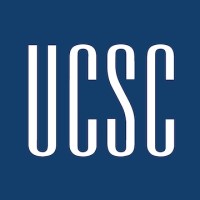Bachelor of Arts in Business Management Economics (Bachelors)
UC Santa Cruz
Santa Cruz, CA
The business management economics major provides students who are interested in careers in business or management with a foundation in economics and a selection of applied fields related to business management. This course of study prepares students for entrance into the business world or admission to graduate programs—either the master’s program in applied economics and finance at UCSC or graduate programs in business and management at other universities.
The program provides a business and management education embedded within a broader economics and liberal arts context and is closely related to the economics and global economics majors and the technology and information management major. The department also offers a series of accounting courses that prepare students interested in certified public accountant (CPA) licensure. Students in the business management economics major have the option of adding an accounting concentration designation on their transcripts, provided they meet the curricular criteria. Electing to complete the accounting course sequence will prepare students for the Uniform Certified Public Accountants' Exam and the credits will count toward exam eligibility. It will assist students in documenting their concrete expertise in accounting and thus help them compete for entry- level accounting positions in industry and public accounting as well as secure internship opportunities. For the concentration the eight (8) required courses include: ECON 110: Managerial Cost Accounting and Control, ECON 111A: Intermediate Accounting I, ECON 111B: Intermediate Accounting II, ECON 111C: Intermediate Accounting III, ECON 112: Audit, ECON 116: Advanced Topics in Accounting and Ethics, ECON 117A: Tax Factors for Individuals, and ECON 117B: Tax Factors for Business. Students electing the accounting concentration may also reduce their computer literacy requirements by one course (from two to one).
This major has several important elements. First, it combines the strong analytic approach of economics with the technical aspects of management. Second, it recognizes that computing is intrinsic to business and is an essential skill for those who wish to enter this field. Students in this major gain knowledge about using computing as a tool of analysis for economic, statistical, and financial data. Third, the major offers field placements (arranged with the economics advisors) which provide an excellent way to apply students’ academic knowledge of economics, business, and management to issues and problems in the real world; they provide marketable skills as well as important job contacts.
Students who are committed to the major early in their academic career should plan to complete ECON 1, ECON 2, ECON 10A, ECON 10B, AM 11A, AM 11B, STAT 17 and STAT 17L and preferably ECON 100A, ECON 100B, and ECON 113 no later than the end of their sophomore year.
Program Learning Outcomes
Program learning outcomes for economics, economics and mathematics, business management economics, and global economics majors:
✔ Critical Thinking Skills: Students are expected to be able to apply economic analysis to everyday problems in real world situations, to understand current events and evaluate specific policy proposals, and to evaluate the role played by assumptions in arguments that reach different conclusions to a specific economic or policy problem.
✔ Quantitative Reasoning Skills: Students are expected to understand how to use empirical evidence to evaluate the validity of an economic argument, use statistical methodology, interpret statistical results, and conduct appropriate statistical analysis of data.
✔ Problem-Solving Skills: Students are expected to be able to solve problems that have clear solutions and to address problems that do not have clear answers and explain conditions under which these solutions may be correct.
✔ Specialized Knowledge and Application of Skills: Students are expected to develop critical and quantitative thinking skills specific to business and accounting.
✔ Communication Skills: Students are expected to be able to communicate effectively in written, oral, and graphical form about specific issues, and to formulate well-organized written arguments that state assumptions and hypotheses supported by evidence.















